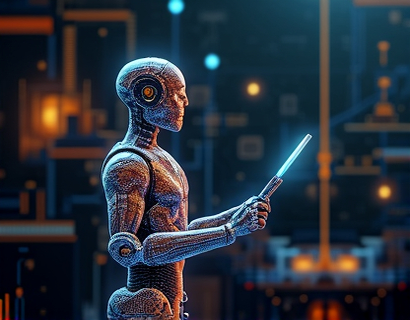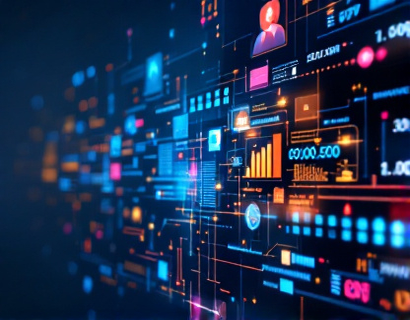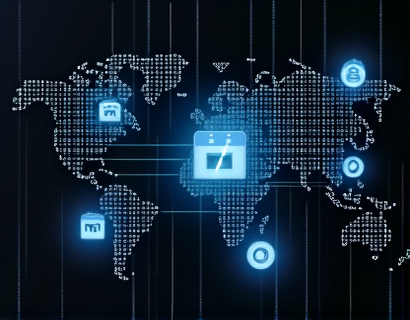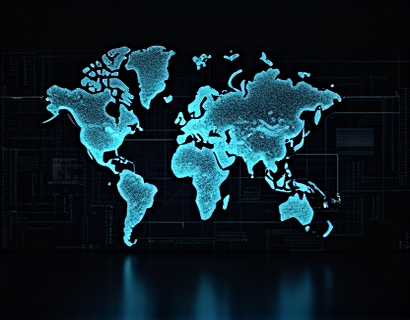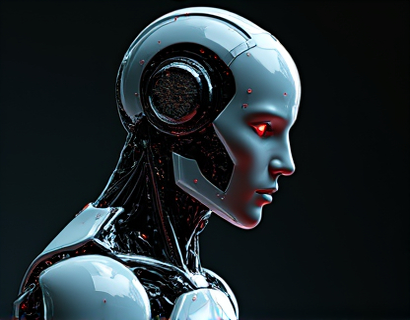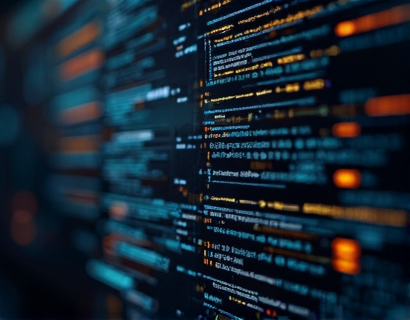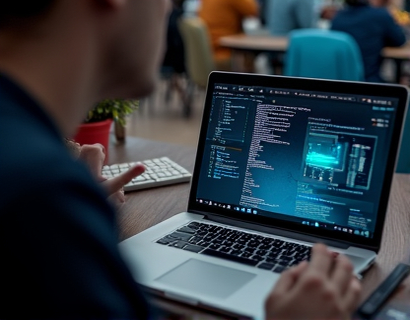Decentralized Productivity 4.0: Revolutionizing Business with AI and Crypto Integration
The business landscape is undergoing a transformative shift, driven by the convergence of artificial intelligence (AI) and cryptocurrency technologies. This new era, often referred to as Decentralized Productivity 4.0, is redefining how companies operate, innovate, and connect. By integrating AI with blockchain and cryptocurrency, organizations can unlock unprecedented levels of efficiency, security, and connectivity. This article delves into the key components of this revolution, exploring how tech leaders and early adopters can harness these technologies to enhance productivity and stay ahead in a rapidly evolving market.
The foundation of Decentralized Productivity 4.0 lies in the synergy between AI and decentralized technologies. AI, with its ability to process vast amounts of data, learn from patterns, and make intelligent decisions, is a game-changer for businesses. When combined with the transparency, security, and decentralization offered by blockchain, the potential for innovation becomes immense. This integration not only optimizes internal processes but also opens new avenues for collaboration and value creation.
Enhanced Data Management and Security
One of the most significant benefits of integrating AI with decentralized technologies is the enhancement of data management and security. Traditional centralized systems are vulnerable to data breaches and manipulation, which can lead to significant financial and reputational damage. Decentralized systems, on the other hand, distribute data across a network of nodes, making it extremely difficult for malicious actors to alter or steal information.
AI plays a crucial role in this setup by providing advanced analytics and monitoring capabilities. Machine learning algorithms can detect anomalies and potential security threats in real-time, ensuring that any suspicious activity is promptly addressed. This proactive approach to security not only protects sensitive data but also builds trust among users and stakeholders. For businesses, this means a more secure environment to operate in, allowing them to focus on innovation rather than constant security threats.
Optimized Process Automation
Automation is a cornerstone of Decentralized Productivity 4.0, and AI is the driving force behind it. By automating repetitive and time-consuming tasks, businesses can significantly reduce operational costs and increase efficiency. AI-powered bots and smart contracts can execute transactions, manage workflows, and even make strategic decisions with minimal human intervention.
Smart contracts, in particular, are a revolutionary feature of blockchain technology. These self-executing contracts with the terms directly written into code can automate complex business processes, ensuring that all parties adhere to the agreed terms. This not only speeds up transactions but also reduces the need for intermediaries, lowering costs and increasing transparency. For example, in supply chain management, smart contracts can track the movement of goods, verify authenticity, and ensure timely payments, all without the need for manual oversight.
Improved Collaboration and Connectivity
Decentralized platforms foster a new level of collaboration and connectivity among businesses, developers, and users. By removing the barriers of traditional centralized systems, these platforms enable seamless interaction and data sharing. AI enhances this by providing tools that facilitate communication, project management, and resource allocation.
Decentralized social networks and collaboration tools, powered by AI, can analyze user behavior and preferences to create personalized workspaces. These platforms can suggest relevant projects, connect users with complementary skills, and even predict potential bottlenecks in collaborative efforts. This level of connectivity not only boosts productivity but also fosters a more inclusive and dynamic business ecosystem.
Innovative Financial Models
The integration of cryptocurrency into Decentralized Productivity 4.0 opens up new financial models that can revolutionize how businesses operate. Cryptocurrencies provide a decentralized and transparent means of transaction, eliminating the need for traditional banking systems. This can be particularly beneficial for global businesses, as it reduces currency conversion fees and speeds up cross-border payments.
Tokenization, another key aspect, allows businesses to represent assets, such as real estate, equity, or intellectual property, as digital tokens on a blockchain. This not only increases liquidity but also makes it easier to trade and manage these assets. For instance, a company can issue tokens to raise funds for a new project, with investors receiving tokens that represent a proportional stake in the project. This democratizes access to capital and provides a more transparent and efficient way to fund business initiatives.
Enhanced User Experience and Personalization
AI-driven personalization is a significant advantage of Decentralized Productivity 4.0. By leveraging AI algorithms, platforms can analyze user data to provide tailored experiences and recommendations. This can range from customized dashboards and notifications to personalized learning and development resources. Such personalization not only improves user satisfaction but also increases engagement and productivity.
Moreover, decentralized identity solutions, powered by blockchain, can give users greater control over their personal data. Users can choose what information to share and with whom, ensuring privacy and security. AI can enhance this by providing tools to manage and verify identities, reducing the risk of fraud and enhancing trust within the ecosystem.
Challenges and Considerations
While the potential benefits of Decentralized Productivity 4.0 are substantial, there are also challenges and considerations that businesses must address. One of the primary concerns is the technical complexity of integrating AI and blockchain technologies. This requires a skilled workforce capable of developing, maintaining, and optimizing these systems. Companies may need to invest in training or hire experts to navigate this new technological landscape.
Another challenge is the regulatory environment. As decentralized technologies are still relatively new, regulations are evolving and can vary significantly across different regions. Businesses must stay informed about local and international regulations to ensure compliance and avoid legal issues. This may involve working closely with legal experts and participating in industry discussions to shape favorable policies.
Case Studies and Real-World Applications
Several companies have already begun to leverage Decentralized Productivity 4.0, achieving notable success. For instance, a logistics company implemented a blockchain-based tracking system integrated with AI analytics to optimize its supply chain. The result was a 30% reduction in delivery times and a significant decrease in operational costs. The AI-powered system could predict delays and suggest alternative routes, while the blockchain ensured transparent and tamper-proof tracking.
In the creative industry, a content creation platform used tokenization to reward creators based on the engagement and value of their content. AI algorithms analyzed user interactions to determine the most valuable content, ensuring fair compensation. This not only incentivized high-quality content creation but also built a more engaged and loyal user base.
Future Outlook
The future of Decentralized Productivity 4.0 looks promising, with ongoing advancements in AI and blockchain technologies. As these technologies mature, we can expect even more innovative applications and broader adoption across various industries. The key will be for businesses to stay agile and open to experimentation, embracing the opportunities while addressing the challenges.
For tech leaders and early adopters, the journey into Decentralized Productivity 4.0 is not just about staying competitive; it's about redefining what's possible. By harnessing the power of AI and cryptocurrency, businesses can create more efficient, secure, and collaborative environments. This is not just a technological shift but a fundamental transformation of how we work and interact in the digital age.







